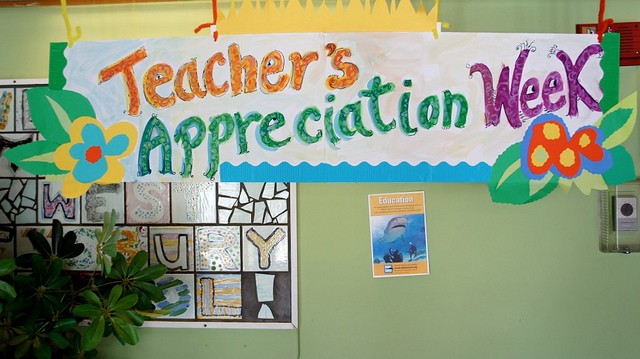Uber Optics

As communities are heading back to school, we’d like to take a moment to celebrate the educators who are also our Uber partner drivers. Whether it’s an afternoon shift or a summertime gig, partnering with Uber provides teachers with the flexibility and opportunity they need to continue creating a foundation of excellence for students across the country.
Every day teachers are asked to do more with less, constantly faced with new challenges and limited resources. Uber opens the door for more possibilities and delivers a meaningful impact to the communities we serve.
Teachers are among the most dedicated, passionate and hardworking professionals — a few of the qualities that make the best Uber partner drivers. Throughout the year, we’ll continue to invest in providing opportunities for educators in cities around the world — recognizing the need for more income options on their own terms.
This post on Uber’s blog almost feels like a parody. Surely, no modern, wealthy society — say, one in which an app-powered “your own private driver” service might thrive — would force professional, full-time teachers to also drive cars in order to make a living, nor would anyone celebrate that it was happening. Certainly you wouldn’t expect corporations to rush to attach themselves to the phenomenon. And yet. Something, something, teachers, free markets, living wages, man.
The problem with Uber self-seriously announcing that it “provides teachers with the flexibility and opportunity they need to continue creating a foundation of excellence for students across the country” is ultimately a matter of tone, not the literal fact that teachers are using Uber to supplement their incomes. (Lots of teachers work summer jobs!) Had Uber tweaked the language the slightly, with a pinch of outrage — “Every day teachers are asked to do more with less, constantly faced with new challenges and limited resources, and it astounding that they have to use Uber to generate those resources” — it would seem almost righteous, rather than crassly exploitative of the ills of the American education system. But the post seems to go to great pains to avoid acknowledging the actual issues facing teachers or the sources of those problems. Uber is unable to do this, perhaps, because a world in which teachers must drive cars in order to make ends meet, a gig economy, is clearly one that is post-union — one in which Uber thrives, not only because it ensures an unending supply of the underemployed to put behind the wheel, but because it suits the way that the company treats its drivers, who are independent contractors, even though they are euphemistically referred to as “partners.”
That the company’s consistent, nearly frozen posture of disingenuous smirking means that the most perceptible “Uber problem” is almost always how it frames things, rather than how it actually operates, whether it’s systematically sabotaging of competitors or using its quarter-billion-dollar war chest to relentlessly cut fares and driver pay to unsustainable levels in order to undercut existing transit systems, is remarkable in its way, though. If your company’s trying to conquer the world, in the end, being a dick might be the best PR strategy of all.
Photo by vbecker
